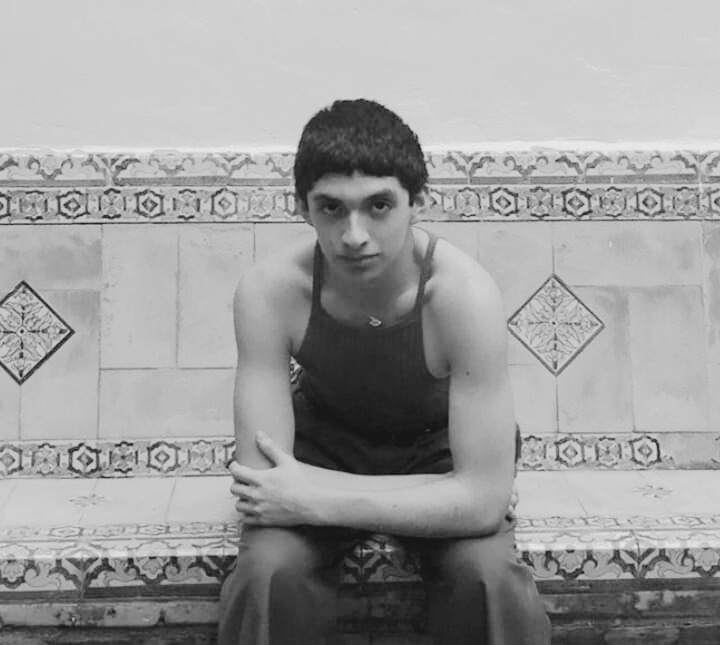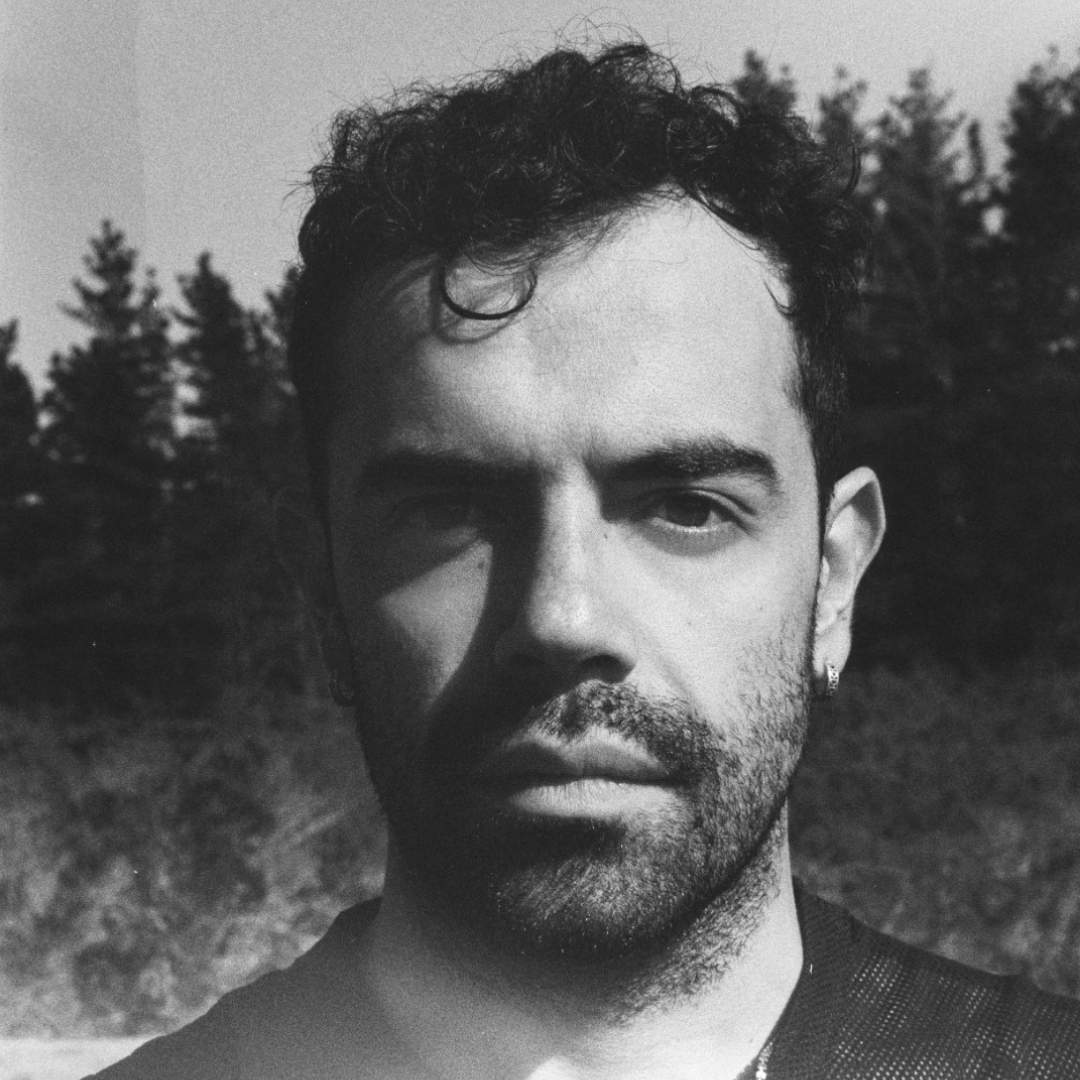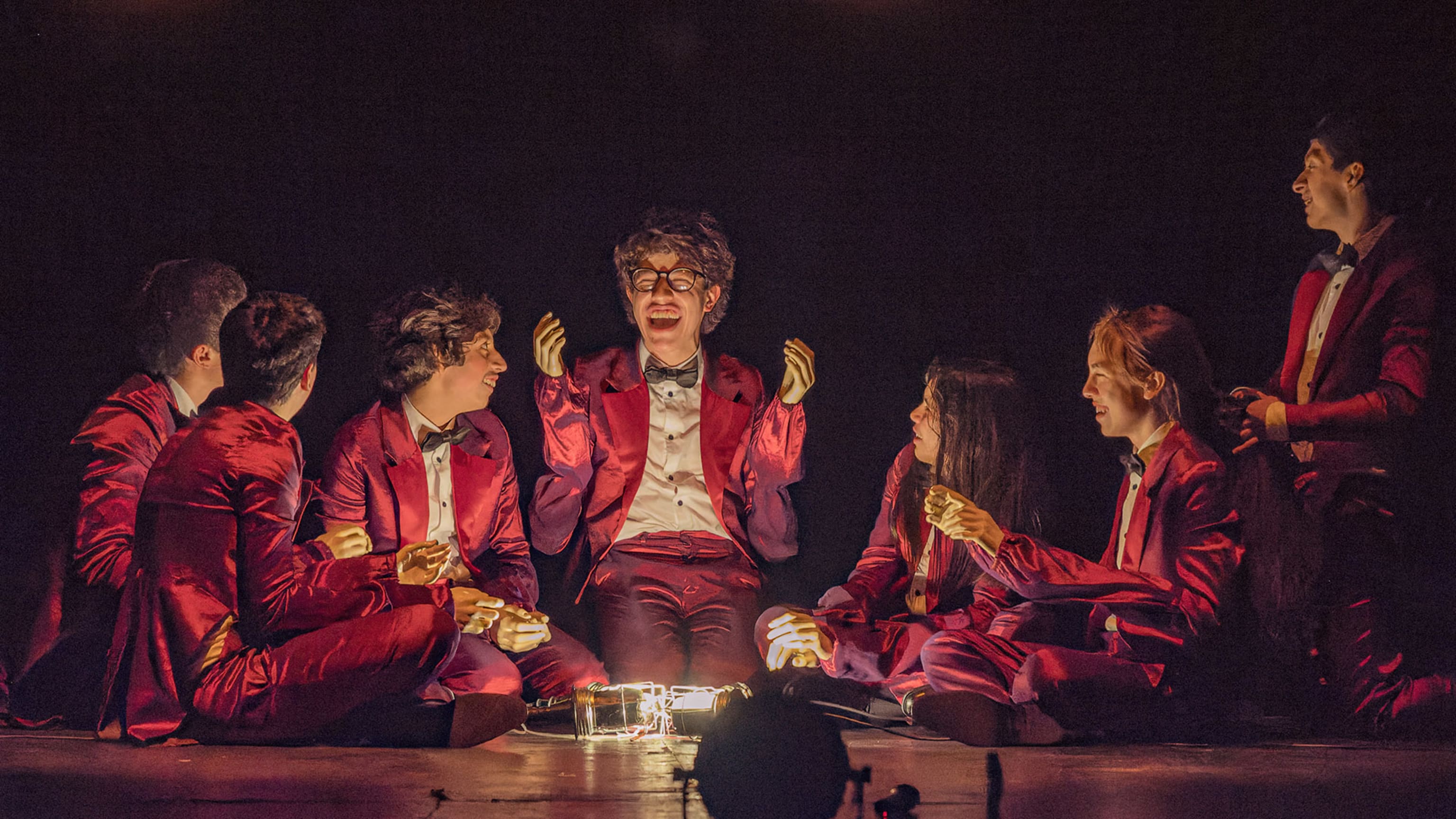
Meet the company behind
The possibility of tenderness
What is masculinity? Four members of the Chilean company La Re-Sentida respond.
The theatre company La Re-Sentida specializes in the intersection of politics and performing arts, and is committed to challenging established thought patterns. During their visit to Europe in 2019, they gained attention for the performance Paisajes para no colorera (Non coloring landscapes), a piece that addressed violence against women in Chile, based on a hundred conversations with young girls and with eight teenage girls in the cast.
'Scenes that were once buried or covered-up are now unearthed on stage in a heavy yet gripping performance. Layera’s productions are always a mix of politics and performance. As founder of the La Re-Sentida collective, made up of young activists and artists, he uses theatre as a critical tool to challenge society,' wrote a German reviewer.
'Paisajes para no colorear is a surprising play (…) visceral in nature and with honest testimonies, the stars put on a moving and much-needed show,' wrote the Chilean newspaper El Mercurio.
They are coming to Norway for the first time during the Bergen International Festival, with a play where teenage boys take centre stage. In the theatre productionThe Possibility of Tenderness (La posibilidad de la ternura), the audience meets a group of teenage boys who share their perception of masculinity and what it means to be a man. The performance is the result of workgroups with youth aged 13–17, auditions, and a collaborative creative process.
The company responded to the following questions:
What do you do in La posibilidad de la ternura?
How would you describe the play in three words?
How has it been working on the play?
What does masculinity mean to you?
Dimitri Bueno, actor

'I am part of the cast, and I am in dialogue on stage with my partners. I express my concerns and opinions about the imposition of masculinity and what I have been taught in my childhood. I also interpreted a text related to the curtain that is an important part of the scenery.'
'Intense-sensitive-tender.'
'It has been a very nice and restorative process for me. In the creative process I have learned a lot: I have acquired scenic tools to talk about my emotions, and got to reflect on things that interest me on stage. All this with a beautiful group of people that I had a chance to meet thanks to this project. Collectively we created this play.'
'I could not define it well; I think it is a set of things that go through the identity of each one of us. I think it is something that I could not define right now. That is why the work is important, because whatever masculinity means for each of us, it doesn't have to be imposed or conform to a specific standard. I don't want to be perceived as a man and be burdened with expectations that have nothing to do with me.'
Carolina de la Maza, direction

'I am co-director of the play.'
'Courageous, emotional and sweet.'
'It has been a very loving space, where I was surprised to meet a cast of young people so tender, who were not afraid to hug each other, to hold each other in difficult moments, who were not ashamed to rest their heads on the shoulder of another partner and receive caresses without fear. They broke any prejudice I had of what it would be like to work with a group of young men. I was not used to seeing young people like that in my environment when I was a teenager, nor when I was teaching in schools a couple of years ago. They revolutionized any preconceived idea I might have had of what it would be like to do this work.'
'Masculinity is a concept that is very much associated with male persons, and to which adjectives are attributed that could very well belong to a female person or an intersexual person, such as "strong". Although nowadays there is talk of new masculinities far from hegemonic masculinity (far from aggressive, for example), I do not believe that there are "new" masculinities; diverse people have always existed. In short, masculinity for me is a sexist concept that contributes to the existence of discrimination.'
Katherine Maureira, director’s assistant

1. 'Director’s assistant and stage manager.'
2. 'Sensitive, honest, hopeful.'
3. 'It has been a process of discovering, knowing and recognizing ourselves in these new masculinities that came to break our social paradigms about what it means to be born male. It has been a very significant learning process, especially for the adult team, since the young cast have led us to rethink again and again what we do artistically and our daily practices. It has become enriching to know and work with adolescents, understanding where their pulses are today, what matters to them, what affects them, how they relate, what they need to divest themselves of to inhabit this world today, far from fear and violence.'
4. 'Masculinity is not something that we can find only in bodies born with male sex, nor that we can touch or access as something material, if we talk about the social and cultural characteristics that "make us to be" masculine or something other than what hegemonic masculinity imposes on us. With this process I have been able to move much further away from those social definitions of what masculinity is or should be like. And I consider that there are many, diverse masculinities. During the process I asked myself where do we break the limits of something or someone to be or not to be masculine? But today I think that it is only a politically idealistic formulation to gain control over bodies and to separate men, women and dissidences, granting power and control over each other.'
Humberto Adriano, director’s assistant

1. 'I do the directing assistance in La posibilidad de la ternura.'
2. 'I would describe the work as sensitive, vulnerable and honest.'
3. 'It was a very rewarding experience, not only because of the themes we worked on, but also because of the group of teenagers that was formed to create this play. I always think it is important to be able to build connections with the younger generations, and art plays a fundamental role in this type of operation. Art manages to address in a sensitive and empathetic way internal conflicts of current human processes, as is the case of claiming demonstrations of masculinity little validated and give them a place in a world where affective expressions or ways of living your sexuality or gender are in a constant maelstrom of changes and adjustments.'
4. 'Masculinity is a term that is already outdated to me, it reflects attributes and characteristics that ceased to make sense to me some time ago. In my opinion, and with respect to this work's process, it is necessary to demolish the foundations of this concept to give it its own meaning and autonomy. Each one has the final word on how he wants to live his "masculinity", being faithful to the feelings, vulnerability and fears with which we live. There is also strength and courage in showing these human facets, contrary to how it was understood some time ago. In conclusion, I believe that one must always be authentically "masculine", and not popularly "masculine" as imposed by old society, the one that expires in its values and duties with each passing second.'
La posibilidad de la ternura will be performed in Grieghallen 25 and 26 May.



